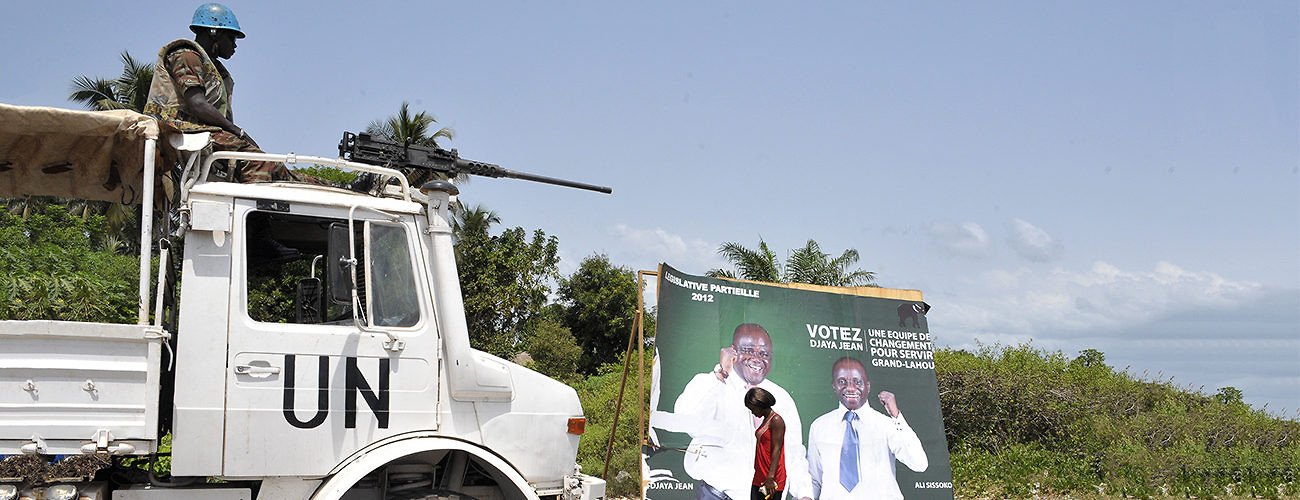Peacekeepers of the UN Operation in Côte d'Ivoire (UNOCI) provide security as legislative byelections take place in Grand Laho, February 26, 2012. (UN Photo/Hien Macline)
The UN Operation in Côte d’Ivoire (UNOCI) completed its mandate on June 30, 2017, after more than thirteen years. One year later, the secretary-general is set to release his “comprehensive study of the role of UNOCI in the settlement of the situation” in the country. This presents an opportunity to examine the many stages or “lives” of a peacekeeping operation, something often overlooked.
This report aims not only to contribute to this learning process but also to go beyond the scope of the secretary-general’s study to examine the trajectory of UNOCI over the years. It provides a historical account of the various phases of the Ivorian crisis and examines how UNOCI evolved and adapted to the circumstances and how the Security Council dealt with the Ivorian dossier.
Based on this assessment, the report draws lessons from UNOCI for other peacekeeping missions. These include the challenges missions face when the consent of the host state is fragile, a permanent member of the Security Council is heavily involved, they have a mandate to certify elections, they take a robust approach to a crisis, they undertake both disarmament, demobilization, and reintegration and security sector reform processes, and the UN applies sanctions or arms embargoes.








